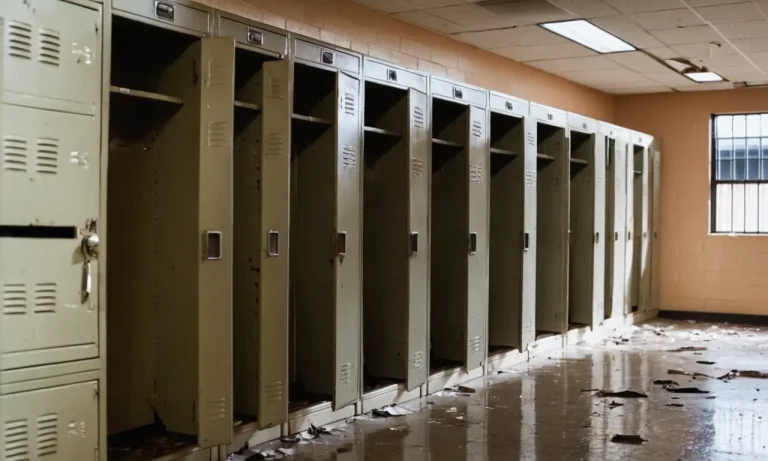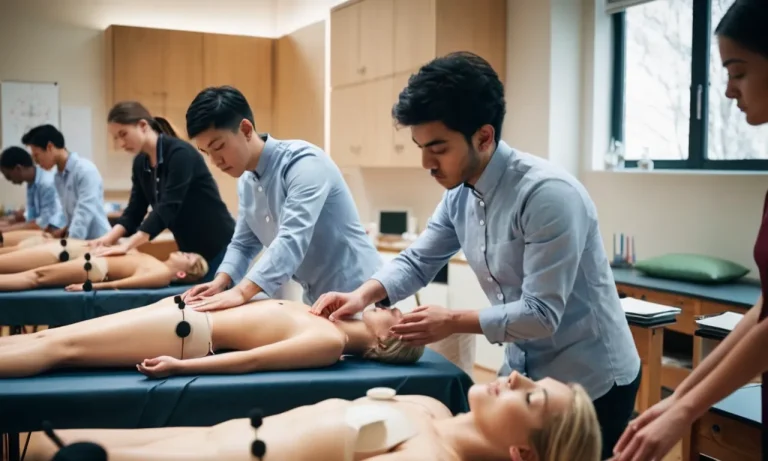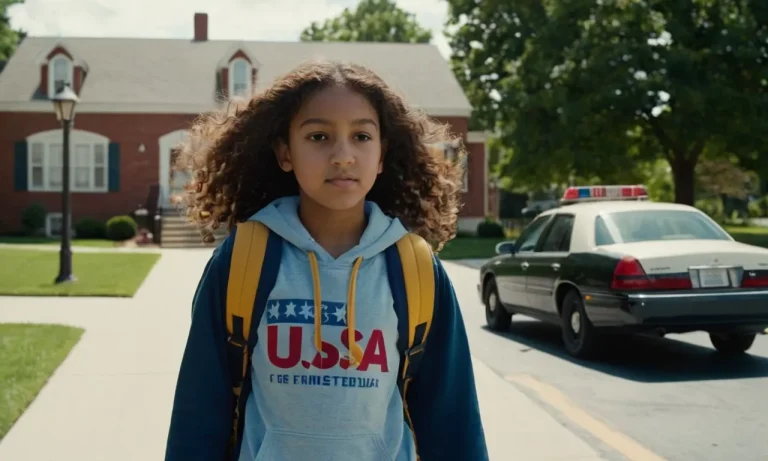As a parent, the thought of your child being questioned by Child Protective Services (CPS) without your knowledge or consent can be unsettling. The issue of CPS interviewing children at school raises concerns about privacy, parental rights, and the well-being of the child.
If you’re short on time, here’s a quick answer to your question: CPS can interview a child at school without parental permission in certain circumstances, such as when there are allegations of abuse or neglect. However, the laws and procedures vary from state to state.
In this comprehensive article, we’ll delve into the legal framework surrounding CPS interviews with children at school, the circumstances under which they can occur, the rights of parents and children, and the steps you can take to protect your family’s interests.
Legal Framework and State Laws
The legal framework governing whether Child Protective Services (CPS) can interview a child at school without parental permission is a complex web of federal and state laws. At the federal level, the Child Abuse Prevention and Treatment Act (CAPTA) provides guidelines for states to follow in their child protection policies, but ultimately, it’s up to each state to establish its own specific laws and regulations.
Overview of federal and state laws governing CPS interviews
While CAPTA encourages states to have provisions that allow for the investigation of suspected child abuse and neglect, it does not explicitly address the issue of CPS interviews with children at school without parental consent.
This means that the legal framework for such interviews is primarily determined by individual state laws. Generally, most states grant CPS the authority to interview children at school as part of an investigation, but the specific requirements and procedures vary widely.
Variations in state laws regarding parental consent
- Some states, like North Carolina, require CPS to make reasonable efforts to obtain parental consent before interviewing a child at school, but also allow exceptions in certain circumstances.
- Other states, such as Tennessee, grant CPS broader authority to interview children at school without parental consent, as long as the interview is part of an active investigation.
- In contrast, states like West Virginia generally require parental consent for CPS interviews at school, with limited exceptions.
Exceptions and circumstances that allow CPS to interview without permission
While the specific circumstances may vary by state, there are generally a few common exceptions that allow CPS to interview a child at school without parental consent. These typically include situations where there is an immediate risk of harm to the child, or where the parents are the alleged perpetrators of abuse or neglect. In some states, CPS may also be permitted to conduct interviews without consent if obtaining parental permission would potentially compromise the investigation or put the child at further risk.
According to a report by the Child Welfare Information Gateway, as of 2017, approximately 20 states had laws or policies explicitly allowing CPS to interview children at school without parental consent in certain circumstances.
However, it’s important to note that these laws and policies are subject to change, and it’s always advisable to consult with a local legal expert or child advocacy organization for the most up-to-date information in your specific state.
Circumstances Allowing CPS Interviews Without Parental Consent
While it’s generally preferred for Child Protective Services (CPS) to obtain parental consent before interviewing a child, there are certain circumstances where they can legally conduct interviews without it.
These exceptions are designed to protect the child’s safety and well-being when there are credible concerns of abuse or neglect.
Allegations of abuse or neglect
If CPS receives a report alleging that a child has been abused or neglected, they have the authority to interview the child without parental consent. This allows them to gather crucial information and assess the situation promptly.
According to a 2021 report by the Child Welfare Information Gateway, approximately 3.9 million children were subjects of at least one report of child abuse or neglect in 2019. 😔 In such cases, CPS aims to ensure the child’s safety takes precedence.
Imminent risk of harm to the child
If CPS has reasonable cause to believe that a child is in imminent danger of being subjected to abuse or neglect, they can interview the child without parental consent. This could include situations where there is evidence of physical harm, emotional trauma, or a risk of removal from the home.
The goal is to act swiftly to protect the child from further harm. As stated by the U.S. Department of Health & Human Services, “CPS agencies have a legal responsibility to ensure the safety and well-being of all children in their jurisdiction, regardless of immigration status.” 👏
Court orders or warrants
In some cases, CPS may obtain a court order or warrant that allows them to interview a child without parental consent. These legal documents are typically granted when there is substantial evidence of abuse or neglect, and the court deems it necessary for the child’s protection.
According to a 2017 report by the Child Welfare Information Gateway, approximately 18% of child abuse and neglect investigations involved court action. 😮
Exigent circumstances
Exigent circumstances refer to emergency situations where immediate action is required to prevent imminent harm or danger to a child. In such cases, CPS may interview a child without parental consent if there is a reasonable belief that delaying the interview could result in further harm or the loss of crucial evidence.
For example, if a child discloses abuse to a teacher or counselor, CPS may interview the child immediately to gather information and ensure their safety. As emphasized by the Child Welfare Information Gateway, “The child’s safety and well-being must be the primary concern.” 👍
It’s important to note that while these exceptions allow CPS to conduct interviews without parental consent, they are subject to legal and ethical standards. CPS caseworkers must follow established protocols, respect the child’s rights, and act in the child’s best interests.
If you have concerns about a CPS interview or believe your rights have been violated, it’s advisable to consult with a legal professional. Remember, the ultimate goal is to ensure the safety and well-being of children who may be at risk of abuse or neglect.
Rights of Parents and Children
Parental rights to be present during interviews
As a parent, you have the legal right to be present when your child is being interviewed by Child Protective Services (CPS) or law enforcement. This right is enshrined in the Confidentiality and Information Sharing Act, which states that parents must be notified and given the opportunity to attend any interviews or questioning of their child.
However, there are exceptions to this rule, such as when the child’s safety is at immediate risk or when the parent is the alleged perpetrator of abuse or neglect. In such cases, CPS may proceed with the interview without parental consent or presence.
Child’s right to refuse or stop an interview
Children also have certain rights when it comes to interviews with CPS or law enforcement. According to the American Bar Association, children have the right to refuse or stop an interview at any time. This right is based on the Fifth Amendment’s protection against self-incrimination.
However, it’s important to note that children may not fully understand their rights, and it’s up to the adults involved (parents, guardians, or legal representatives) to ensure their rights are protected.
Right to legal representation
Both parents and children have the right to legal representation during CPS investigations and interviews. According to the Child Welfare Information Gateway, in many states, parents have the right to have an attorney present during CPS interviews or investigations.
Additionally, children may be appointed a guardian ad litem or an attorney to represent their interests. Legal representation can help ensure that your rights are protected and that the investigation is conducted fairly.
Confidentiality and privacy concerns
CPS investigations and interviews are subject to strict confidentiality and privacy laws. According to the Administration for Children and Families, CPS records and information gathered during investigations are generally confidential and can only be shared on a need-to-know basis with authorized individuals or agencies.
However, there are exceptions to this rule, such as when sharing information is necessary to protect the child’s safety or when ordered by a court. Parents and children should be aware of their privacy rights and ensure that their personal information is handled properly.
It’s important to remember that while CPS has the authority to investigate allegations of child abuse or neglect, parents and children also have legal rights that must be respected. If you find yourself in a situation where CPS is involved, it’s crucial to understand your rights and seek legal representation if necessary.
By working together and respecting each other’s rights, we can ensure the safety and well-being of children while upholding due process and fairness.
Protecting Your Family’s Interests
Educating yourself on state laws and procedures
When it comes to protecting your family’s interests in the face of potential Child Protective Services (CPS) involvement, knowledge is power. Each state has its own laws and procedures governing when and how CPS can interact with children at school.
It’s crucial to educate yourself on these regulations to ensure your rights are upheld. According to the Child Welfare Information Gateway, a service of the U.S. Department of Health and Human Services, many states require parental consent or a court order before CPS can interview a child at school.
However, exceptions may apply in cases of suspected abuse or neglect.
Establishing open communication with school officials
Maintaining open and transparent communication with school officials is key to protecting your family’s interests. Don’t be afraid to ask questions and voice your concerns regarding CPS involvement. Understand the school’s policies and procedures, and work collaboratively to ensure your child’s well-being.
According to a study by the Child Trends organization, children with involved parents tend to have better academic performance, higher self-esteem, and fewer behavioral problems. 😊
Seeking legal counsel if necessary
In some cases, it may be advisable to seek legal counsel to protect your family’s interests. An experienced attorney can help you navigate the complexities of CPS investigations, advise you on your rights, and represent you in legal proceedings if necessary.
Don’t hesitate to reach out for professional assistance, especially if you feel your rights or your child’s well-being are being compromised. According to the American Bar Association, having legal representation can make a significant difference in the outcome of CPS cases.
Advocating for your child’s well-being
Above all, your primary concern should be advocating for your child’s well-being. While CPS investigations can be stressful and emotionally charged, it’s essential to remain calm and focused on your child’s best interests.
Be proactive in communicating with CPS workers, school officials, and other involved parties, and don’t hesitate to ask questions or raise concerns. Remember, you are your child’s strongest advocate, and your voice matters.
According to a study by the Child Welfare Information Gateway, children whose parents actively participated in court proceedings experienced better outcomes. 👏
Conclusion
The issue of CPS interviewing children at school without parental consent is a complex and sensitive matter that requires a delicate balance between protecting children’s safety and upholding parental rights.
While CPS has the authority to conduct interviews in certain circumstances, it’s crucial for parents to understand their rights and the legal framework governing these interactions.
By educating themselves on state laws, establishing open communication with school officials, and seeking legal counsel when necessary, parents can ensure that their family’s interests are protected while cooperating with legitimate investigations aimed at safeguarding children’s well-being.
Ultimately, the goal should be to create a system that prioritizes the safety and best interests of children while respecting the rights and concerns of parents, fostering a collaborative approach that benefits all parties involved.






